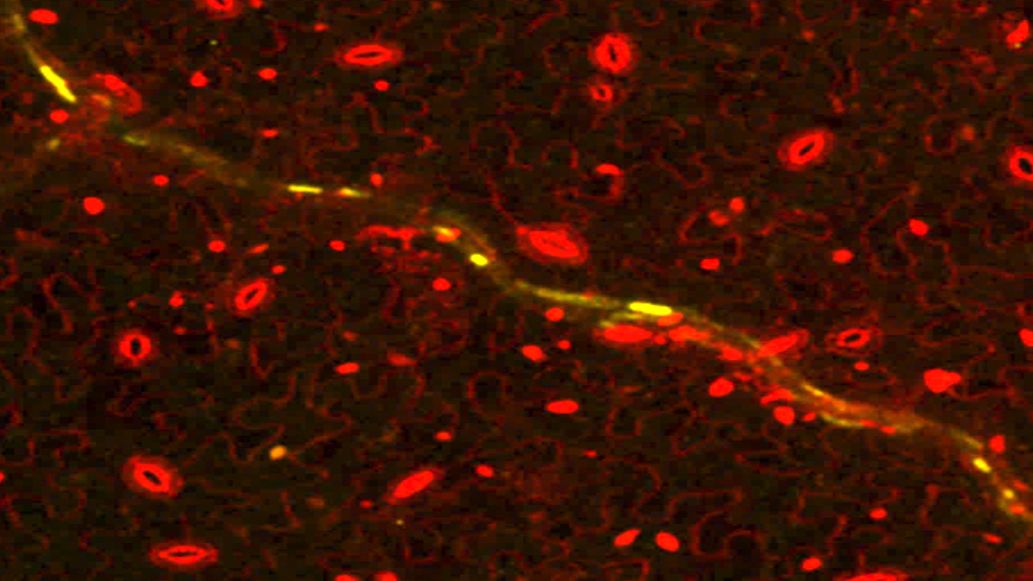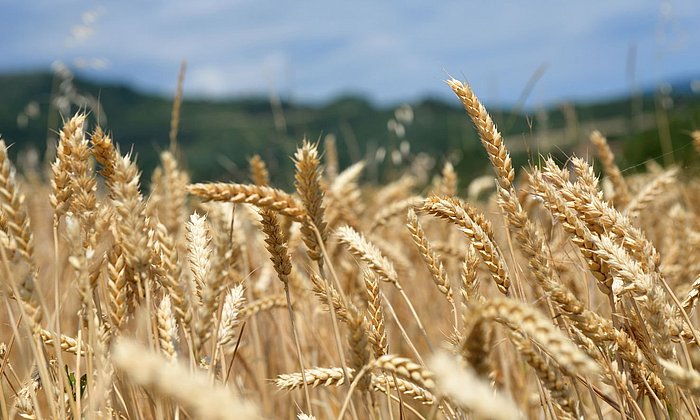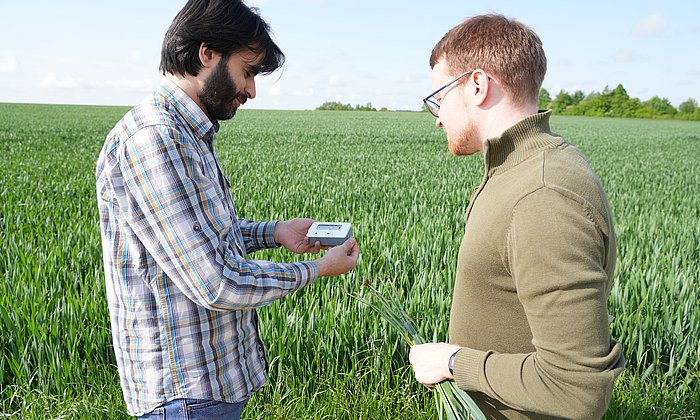Fertilization affects the plant immune system
Why too much nitrogen is harmful to plants

“The immune system of plants and humans is much more alike than one might initially think. In plants, hormone-like peptides are involved in the immune response, and there, too, is a complex interplay between nutrition and health,” explains Ralph Hückelhoven, Professor of Phytopathology at TUM. Together with other researchers, a working group at his chair, led by Martin Stegmann, identified one of the connecting points of this relationship: the C-terminally encoded peptides (CEPs). These are plant peptide hormones, known as phytocytokines, which serve various functions as messenger substances, from stress response to root formation. The study now shows that they also play a role in the plant´s immune defense.
The researchers demonstrated that plants were more susceptible to bacterial infections if they produced less of these peptide hormones or if their sensors on the cell surface were missing. It was also shown that plants produced more peptide hormones as they were attacked by bacteria. For this purpose, the researchers exposed the test plants to pathogenic bacteria of the genus Pseudomonas. This shows that the peptide hormones are closely linked to the plant's resistance to bacterial pathogens.
Antibacterial resistance is nitrogen-dependent
Nitrogen is an important fertilizer. However, high nitrogen concentrations affect the signaling pathway of the investigated peptide hormones. The research showed that the resistance to bacteria mediated by the peptide hormones was reduced when the plants were exposed to high nitrogen concentrations, making the plants more susceptible to diseases. “These results provide starting points for further research into the reason and mechanisms behind this link between the plant's nutritional status and immune defense,” explains Ralph Hückelhoven.
The research may also have implications for agricultural practice. Here, higher susceptibility to certain diseases due to excess nitrogen levels may limit crop health. Ralph Hückelhoven explains: “With our newly gained knowledge, it might be possible in the future to breed crops that are particularly resistant to disease, even with a moderate application of nitrogen.”
Rzemieniewski, J., Leicher, H., Lee, H.K. et al. (2024): CEP signaling coordinates plant immunity with nitrogen status. Nature Communications 15, 10686. https://doi.org/10.1038/s41467-024-55194-x
- Prof. Ralph Hückelhoven is Professor of Phytopathology at TUM. His chair is member of the TUM School of Life Sciences and the Hans Eisenmann-Forum.
- Prof. Dr. Martin Stegmann has been researching at the Chair of Phytopathology until 2024. Since April 2024, he has been a professor at Ulm University.
Technical University of Munich
Corporate Communications Center
- Linda Schinnenburg
- linda.schinnenburg@tum.de
- presse@tum.de
- Teamwebsite
Contacts to this article:
Prof. Dr. Ralph Hückelhoven
Technical University of Munich
Chair of Phytopathology
+49 8161 71 3682
hueckelhoven@tum.de
Prof. Dr. Martin Stegmann
Ulm University
Institute of Botany
+49 731 5023331
martin.stegmann@tum.de


